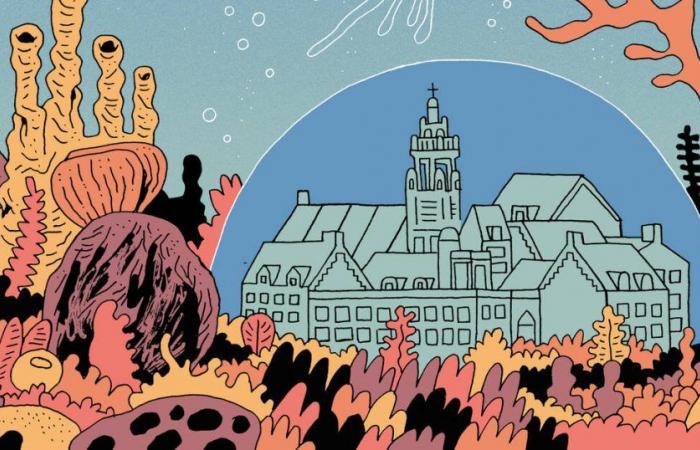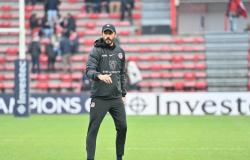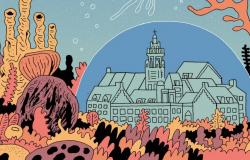
At a time of ecological transition, in partnership with the Urban Projects and Strategies Observation Platform (Popsu)immersed in the initiatives that move urban policies.
In the collective imagination, the reasons for moving to the outskirts of a big city are legion. Enjoy an individual garden in a calmer environment. Pay less for your accommodation. Benefit from a nearby urban area without the inconveniences linked to traffic, noise… Many French people have dreamed of this change of life, particularly during confinement. Saint-Loubès, land of vineyards, hillsides and plains, just 15 kilometers northeast of Bordeaux, has not escaped this craze. To be convinced of this, just take a stroll through the neighborhoods where suburban housing has sprouted like mushrooms in the town. The small town, very attractive thanks to its access by the motorway or its train station and its numerous facilities and services, now has 10,000 inhabitants. Since the 1970s, its population has almost tripled, with the arrival, in recent years, of many city dwellers from the Bordeaux metropolis wishing to realize this imagination with many advantages: the city in the countryside.
To “absorb” these newcomers, the urban plan could have remained relatively classic: public facilities mainly installed around the old devitalized town and a commune which gradually grew in a circle from this same center. This was without taking into account the mobilization – relatively unprecedented on the scale of the department – of a part of the citizens of Saint-Loubès who sought to rethink urbanity in the light of ecological transition by fighting in particular against sprawl. urban. The Saint-Loubès en transition association, created in 2016, will have contributed to creating momentum. Intrigued by this trajectory, two researchers, Julie Ambal, sociologist and landscape architect, and Xavier Guillot, former professor at the National School of Architecture of Bordeaux and now teaching at his counterpart in Marseille, tried for Popsu to understand how this small city under Bordeaux influence has worked hard to provide an acceptable living environment under demographic pressure.
“Saint-Loubès no longer really had a vision”
Their work began in 2018 as part of Popsu territories. For weeks, the duo traveled up and down the city to immerse themselves in the territory and create links with its inhabitants. “Until the day our research took a surprising turn. Emmanuelle Favre, a committed citizen we met during our journey, decided to run for municipal elections in the hope of shaking up urban politics… and was elected mayor in 2020! What began as selfless support ultimately led us to participate in the revision of the PLU. A godsend!” rewinds Xavier Guillot, who himself grew up in a neighboring town. On the agenda: artificialize as little as possible, preserve agricultural and natural areas, aim for greater food autonomy, develop soft mobility, etc. “All these ideas, the outgoing team swept them aside during the previous mandate,” remembers, bitterly, the new councilor.
The pressure linked to the demand for individual housing did not wait for the electoral calendar to modify the Loubesian landscape. Land had already been divided into four to increase the number of houses, as permitted by the Alur law since 2014, paths were artificialized, and water flow became more complex in certain areas. “Saint-Loubès no longer really had a vision. If people come to live here, it’s not so that it becomes Lormont [commune limitrophe de Bordeaux, ndlr]. We must be able to preserve the markers of the campaign which made it desirable”pleads Emmanuelle Favre. “The quest for a rural urbanity”summarizes Xavier Guillot.
The collision between two worlds
“On the ground, we want to limit the ghetto effect at all costs. We have small roads, there must not be too many cars and we don’t know where to park. The district where all the public places were concentrated worked at 5,000 inhabitants, but no longer at 10,000. We thought about a new spatial organization to relocate certain services and relieve congestion in the center. explains the mayor. In the summer of 2023, Saint-Loubès purchased a ten-hectare former wine-growing estate, south of the city, to accommodate, by 2027, a school extension, a municipal farm to help supply the canteens. and a public park. Faced with this new roadmap, opponents do not hide their perplexity. Many would have preferred to attract new, more fiscally attractive companies. “A whole paradox with which I struggle and which seems inconsistent with the ZAN”denounces Emmanuelle Favre.
Unsurprisingly, to anchor the story in reality and adapt to both the climate and social emergency, the question of the construction of social housing was also a challenge. “We are behind on our objectives”admits the chosen one. To preserve the green spaces in the city center, no longer attack agricultural land and expand small hamlets, the PLU will therefore favor the construction of residences in R + 2 maximum (on two levels therefore) in order to meet demand. The municipal team is also looking at how to reinvest vacant housing or “hollow teeth” in the industrial zone. Always careful not to distort the city. “Obviously, in reality, things sometimes get stuck. Social housing is good, but not close to home, several residents told us”notes Emmanuelle Favre.
Thus, in this city in transition, it is not uncommon to witness the collision between two worlds. One example among others: the neo-Loubésians will have “more easily tend to build walls and fences between themselves and their neighbors to preserve a certain form of privacy”describes the mayor. A “culture of enclosure” that many historic people who are tired of seeing barricades set up in their city do not share. “In these moments, concludes the mayor of Saint-Loubèsthe notion of acceptability becomes crucial. To anticipate discontent, we regularly organize debates.” A new chapter, which, to function, needs to be written collectively.





